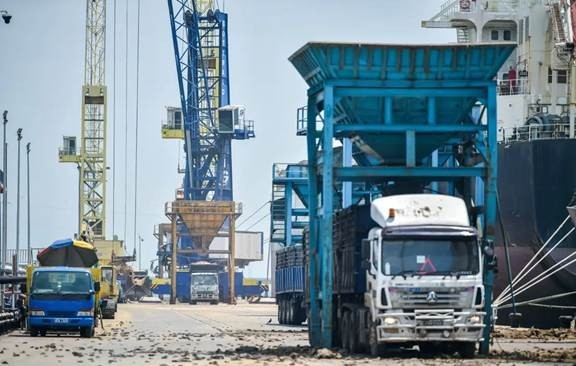
Image credit: The Malaysian Reserve
KUALA LUMPUR: Malaysia should diversify its export markets to reduce the impact of US import tariffs, economists said.
This can be done by expanding free trade agreements and engaging in more multilateral trade deals.
Economists contacted by Business Times also suggested that Malaysia should maintain a multilateral trade strategy by securing favourable terms with the US and promoting dialogue and diplomatic solutions.
US President Donald Trump today reiterated his plans for reciprocal tariffs on imports of other countries, aiming to enforce them starting April 2. This comes a day after the world's largest economy implemented tariff hikes on imports from Canada, Mexico and China on March 4.
"Whatever they tax us, we will tax them," Trump said during his address to the joint session of Congress.
Bank Muamalat Malaysia Bhd chief economist Dr Mohd Afzanizam Abdul Rashid said apart from that, Malaysian industries would need to scale up and be able to produce more higher value-added goods.
"With better quality products, we can ensure that demand will continue despite US customers having to pay tariffs to their government.
"Developing alternative supply chains could also be another area to explore, as this would allow greater flexibility in dealing with trade disruptions, especially those emanating from tariffs," he added.
Afzanizam noted that Malaysia's average tariff is around 5.6 per cent, which is relatively low. In comparison, other countries have higher average tariff rates, including India (17.0 per cent), Bangladesh (14.1 per cent), Korea (13.4 per cent), Thailand (9.8 per cent), Cambodia (9.4 per cent), Vietnam (9.4 per cent), Indonesia (8.0 per cent), and China (7.5 per cent).
"On that note, perhaps the intensity of the tariff hike may not be as severe as for other countries," he added.
On Feb 13, Trump issued a memorandum announcing his intention to impose "reciprocal tariffs" under the Fair and Reciprocal Plan 1.
The memorandum outlines a broad array of measures, from tariffs and taxes to import volumes, that are purported to have contributed to US trade deficits.
The idea behind the reciprocal tariffs is to neutralise these measures and eliminate the trade deficit.
Economist Dr Geoffrey Williams said Trump's tariffs are part of a strategic move to disrupt global trade in order to secure a better deal later.
"Countries that respond positively by cutting tariffs on US imports can avoid reciprocal tariffs on a bilateral basis. Therefore Malaysia should consider reducing tariffs and investment restrictions on US companies at least to balance the tariffs downwards or reduce tariffs overall," he said.
On the downside, Williams noted that imposing tariffs on Malaysia's exports to the US would negatively affect local businesses.
"On the upside, if tariffs are avoided on Malaysia's exports then they could gain export market share in the US," he added.
According to Williams, Malaysia could benefit from shifts in global trade and investment flows if trade and investment are rerouted through the country in response to restricted access to US markets.
"Malaysia should continue a multilateral trade strategy which means negotiating good terms with the US and looking for export diversification. Policymakers can only support this through trade visits in the end it is businesses that must drive this," he said.
Universiti Utara Malaysia Associate Professor Dr Irwan Shah Zainal Abidin said, at this point, it is difficult to be specific, as Trump's approach to tariffs "seems erratic at best."
He noted that Malaysia has a high trade-to-gross domestic product ratio and is highly exposed to both the US and China, making it vulnerable to Trump's tariff policies.
Irwan said the best approach for now is diversification, with a focus on what Malaysia can do within the Asean framework.
"It is more strategic if the diversification strategy be conducted through Asean. The focus should be on critical issues such as improving infrastructure, rules facilitation, easing of doing business, deregulation and improving inflows of foreign direct investments.
"Asean, under the leadership of Malaysia, should focus more on trade integration, via Regional Comprehensive Economic Partnership, Comprehensive and Progressive Agreement for Trans-Pacific Partnership, Gulf Cooperation Council, as well as BRICS," he added.
Irwan said when it comes to BRICS, the emphasis should be on trade integration, lowering tariff and non-tariff barriers, and boosting investment flows rather than focusing solely on de-dollarisation.
He said for industries with high exposure such as semiconductor, there is a need to revisit and update strategies outlined in the main economic documents, such as the New Industrial Master Plan 2030 and the National Semiconductor Strategy.
"The Johor-Singapore Special Economic Zone (JS-SEZ) initiative is also a good start of integration within the context of Asean.
"As for now, the US' reciprocal tariff policy will have a minimal impact on Malaysia's overall trade balance and economic growth prospect for this year," he added.
Irwan said diversification remains the best strategy, but the government must continuously update its approach in response to ongoing developments in Trump's tariff policies and make adjustments accordingly.
Source: https://www.nst.com.my/business/economy/2025/03/1184249/us-reciprocal-tariffs-economists-advise-malaysia-broaden-export

